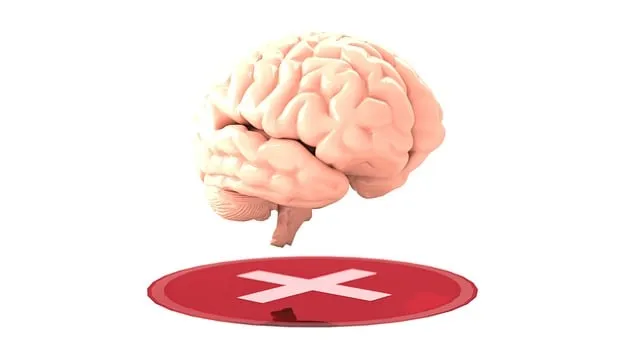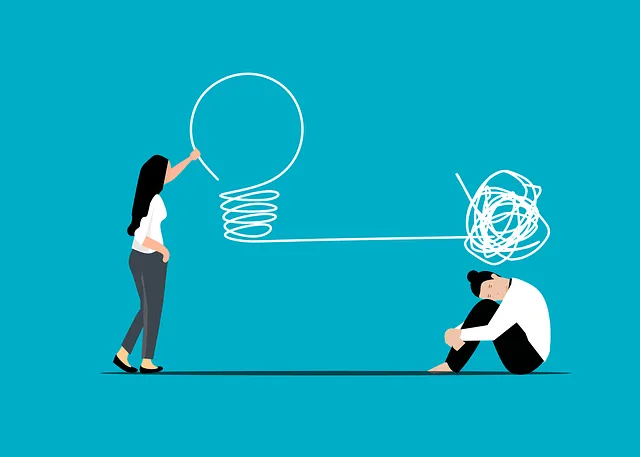Mental Health Crisis Hotlines provide 24/7 support, offering immediate assistance and guidance during acute crises. These hotlines, staffed by trained professionals, bridge healthcare gaps, promote cultural competency, and destigmatize mental illness. The Superior Kaiser Permanente Mental Health Center, with flexible visiting hours and inclusive services, collaborates with hotlines to enhance care. They offer tailored solutions like risk management planning and public awareness campaigns, ensuring round-the-clock support for diverse mental health needs, from crisis intervention to long-term wellness management through mindfulness practices.
Mental health crisis hotline support services are a vital resource for individuals facing emotional distress. In this article, we explore Understanding Mental Health Crisis Hotlines: A Vital Resource, highlighting the importance of these lines in community care. We delve into the services offered by the Superior Kaiser Permanente mental health center, including visiting hours, and provide guidance on when to reach out. Additionally, we discuss the role of hotline support in preventing crises and enhancing well-being post-crisis.
- Understanding Mental Health Crisis Hotlines: A Vital Resource
- Kaiser Permanente Mental Health Center: Services and Access
- When to Reach Out: Identifying Crisis Situations
- The Role of Hotline Support in Community Care
- Enhancing Well-being: Post-Crisis Care and Prevention Strategies
Understanding Mental Health Crisis Hotlines: A Vital Resource

Mental Health Crisis Hotlines serve as a vital resource for individuals facing acute mental health challenges, offering immediate support and guidance. These 24/7 services are designed to provide a safe space for folks to express their distress, receive expert advice, and access appropriate care. Whether it’s a personal crisis or an escalation of existing symptoms, trained professionals answer the line, offering empathy and evidence-based solutions.
The significance of these hotlines extends beyond immediate relief; they play a crucial role in bridging the gap between individuals experiencing mental illness and the healthcare services they need. Moreover, by promoting cultural competency training among healthcare providers and implementing stigma reduction efforts, crisis hotline services contribute to fostering inclusive and supportive communities that prioritize mental wellness. For instance, the Superior Kaiser Permanente mental health center visiting hours can be enhanced through collaboration with such hotlines, ensuring individuals have access to round-the-clock support tailored to their unique needs.
Kaiser Permanente Mental Health Center: Services and Access

The Superior Kaiser Permanente Mental Health Center stands as a beacon of hope and support for individuals grappling with mental health challenges. This renowned facility offers a comprehensive range of services designed to cater to diverse needs, ensuring every patient receives tailored care. Beyond traditional therapy sessions, the center provides innovative solutions such as risk management planning for mental health professionals, fostering a safe environment for both patients and practitioners. Public awareness campaigns development is another cornerstone, aiming to destigmatize mental illness and encourage proactive mental wellness journaling exercises.
Visiting hours at the Kaiser Permanente Mental Health Center are flexible, accommodating various schedules to ensure accessibility. This flexibility complements the center’s commitment to inclusivity, making quality mental health support readily available to all who need it. Whether one seeks guidance through journaling exercises or comprehensive risk management planning, the center’s dedicated team is equipped to provide exceptional care in a supportive setting.
When to Reach Out: Identifying Crisis Situations

In moments of intense emotional distress or when facing a mental health crisis, recognizing the signs and knowing when to reach out for help is paramount. The superior Kaiser Permanente mental health center visiting hours serve as a crucial resource for individuals in urgent need of support. These hotlines are designed for those experiencing a range of issues, from acute suicidal thoughts to managing severe anxiety or depression. Recognizing the red flags, such as persistent feelings of hopelessness, severe changes in appetite or sleep patterns, or engaging in self-harming behaviors, is essential.
Individuals facing interpersonal conflicts, struggling with communication strategies, or needing guidance on mental health policy analysis and advocacy can also benefit from these services. The hotlines provide a safe space to express concerns, offering immediate support and guidance tailored to the situation. Whether it’s learning effective conflict resolution techniques or simply having someone to talk to, these crisis hotline support services play a vital role in ensuring individuals receive the necessary care during their time of need.
The Role of Hotline Support in Community Care

Hotline support services play a vital role in community care by providing immediate assistance and guidance to individuals experiencing mental health crises. These services offer a confidential, non-judgmental space where people can share their concerns and receive expert advice. With 24/7 availability, hotlines ensure that support is accessible whenever needed, filling a crucial gap in community mental health resources.
In the context of the Superior Kaiser Permanente mental health center visiting hours, hotline support complements on-site care by offering timely interventions. Anxiety Relief techniques are often taught during these interactions, empowering individuals to manage acute symptoms before or between scheduled appointments. Moreover, risk assessment is a critical aspect of hotline operations, enabling mental health professionals to gauge severity and connect callers with appropriate resources, be it crisis intervention or long-term treatment options. Public Awareness Campaigns Development can also benefit from hotline data, identifying prevalent issues and tailoring educational initiatives to address community needs effectively.
Enhancing Well-being: Post-Crisis Care and Prevention Strategies

After a mental health crisis, post-crisis care is an essential component of enhancing well-being and preventing future incidents. Many superior Kaiser Permanente mental health centers offer extended support services tailored to individual needs. This may include regular check-ins with therapists, peer support groups, and access to emergency resources. By providing ongoing care, these facilities help individuals navigate the recovery process and develop coping skills for managing their mental wellness in the long term.
In addition to post-crisis care, promoting mental wellness can involve incorporating practical strategies such as mindfulness meditation into daily routines. This ancient practice has been scientifically proven to reduce stress, improve focus, and enhance overall mental resilience. By encouraging clients to learn and apply these coping skills development techniques, Kaiser Permanente mental health centers empower individuals to take proactive steps towards maintaining their mental health and preventing future crises.
Mental health crisis hotline support services play a pivotal role in community care, offering immediate assistance during crisis situations. As highlighted by our exploration of the Kaiser Permanente Mental Health Center’s services and visiting hours, these resources are vital for those seeking help. By understanding when to reach out and recognizing the importance of post-crisis care, individuals can navigate mental health challenges more effectively. Remember that accessing hotline support is a proactive step towards enhancing overall well-being, ensuring better outcomes, and fostering a healthier community.






